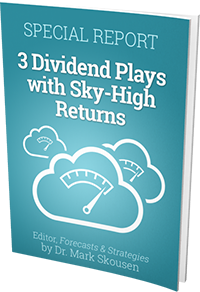Money.
A simple word that, if you aren’t careful, can cause you a lot of problems. If not you, then maybe for a family member or a close friend.
Some have more than others, but the bottom line — and that is what we are all about — is we all need it.
Whether it’s to put food on the table, buy the latest whiz-bang device from Apple or Samsung, buy clothes for that soon to be tween that is rapidly outgrowing their clothes or simply to treat yourself to dinner and a movie, let alone to save for your golden years or pay down the debt that’s already been rung up.
While I could ask you about money, odds are you would have an idea of what it is (currency) and how it’s used (transactional payments, saving and investing). A much better question to ask is if you think you have enough money… enough saved… enough invested for what’s to come.
Even if you think you have it covered, the harsh reality is you simply may not be as prepared as you think. Even though you’ve been saving for a long time and are ahead of the 31% of U.S. adults that have no savings or pension plan, it may not be enough.
Did you know the cost of raising a child through the age of 18 in the United States is more than $240,000? And it can be more — remember that is only the average. That’s the amount it would cost a middle income family in 2013, according to the U.S. Department of Agriculture. I’d point out that excludes the cost of college. According to the College Board, a “moderate” college budget for an in-state public college for the 2013–2014 academic year averaged $22,826, while a moderate budget at a private college averaged $44,750. Some quick math puts that four-year cost in the range of $91,000-$180,000, but that’s just the education part — room, board and other items are extra. That’s a pretty penny if you only have one child; if you have two or more, it could easily cost you more than $1 million dollars to raise them into their early 20s.
Meanwhile, a recent Federal Reserve Board study showed that about 40% of Americans past the age of 45 said they had thought “only a little” or “not at all” about financial planning for retirement. Why is the age of 45 important? Per the Federal Reserve, that’s the age where people typically start to get past the burden of raising kids to age 18. I’m not sure where the Fed get its data on this, but simple observation tells us there are a lot of people having kids past the age of 27.
For argument’s sake, let’s say you’re working on that.
Pundits say you will need 60% to 85% of your gross household income today to sustain the same lifestyle after you retire. A different perspective from Fidelity Investments reports that depending on factors such as your ability to save, your starting age to save, retirement age and other factors, you’ll need 8 times your ending salary.
Data from Sentier Research recently pegged average household income at $53,891, still 4.8% lower than it was at the start of the Great Recession in December 2007. If your ending salary was in that range, then at minimum, you would need another $430,000 dollars. Odds are, however, that would not be enough, given the impact of inflation that saps the purchasing power of your saved dollars. If you are the sole bread winner in the family, that means 8x your ending salary needs to be stretched even further… perhaps you need to be saving more than you think?
The last point comes down to where and how you are building your nest egg. If you are a diligent saver and have been putting money in the bank, the returns you are getting given the low interest rate environment won’t help you much. As I shared a while back, buy and sleep investing in the stock market won’t help you either. You need to have at least some of your assets in growth, and that’s true even after you retire.
No matter how you look at it, you not only have to save, but you have to be an active investor to get the most from your money and get the life you, want be it debt free or kicking back in style in your golden years.
In case you missed it, I encourage you to read my e-letter column from last week about important valuation tools. I also invite you to comment in the space provided below.



![[instant messaging via tablets and phones]](https://www.stockinvestor.com/wp-content/uploads/shutterstock_125411345.jpg)
